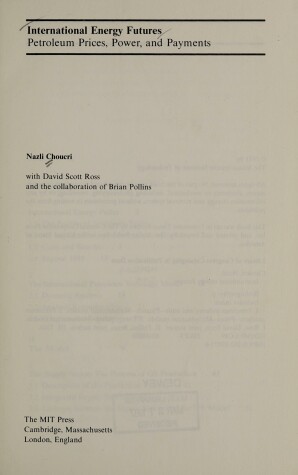This study of the international petroleum trade provides a view that departs from the conventional perspective: it is structured on its perception of the interdependence among the oil-producing countries, the oil-importing countries, and the international oil companies, taking fully into account the political context within which the economic mechanisms operate. These crucial political considerations lead to a descriptive and predictive realism which goes beyond the standard market analyses that ignore their influence.The author develops and presents a simulation model of the world petroleum market in the OPEC era that traces effects and expected impacts from the recent past through a range of alternative futures. Dynamic simulation models, because of their adeptness at manipulating large amounts of data in complex ways, often lead to results that contradict intuitive, top-of-the-head expectations. In the present case, because political influences are explicitly factored into the model along with the familiar economic variables, this effect is particularly pronounced--the book presents some surprising conclusions that run counter to predictions and assessments generated by a purely economic simulation-analysis of the data.Among these conclusions is the author's finding that higher oil prices, under certain circumstances, can be in the best long-term interest of the consuming countries, while low prices can have distinct disadvantages for all the countries in the world oil market by creating political vulnerabilities and instabilities. In general there is an inevitable interdependence (and possible trade-off) between political and economic consequences of different oil prices. Another conclusion is that the international oil companies will continue to play a critical role in the oil trade and that their profits will continue to grow "whatever" the price of oil.The construction of the simulation model is followed from the initial concept to the details of its working parts. A number of market sectors--those of supply, finance, management, price, the producer, the consumer, and the international economy--are identified and incorporated, and their linkages and interdependencies are made explicit. In operation, the model extrapolates a series of alternatives, hypothetical future outcomes based on the input of variable prices, production policies, and tax rates. These alternatives range over a broad set of assumed situations--from radical OPEC price increases through a broken-up OPEC or one with weakened policies to the virtual disappearance of the cartel.
- ISBN10 0262030756
- ISBN13 9780262030755
- Publish Date 31 March 1981
- Publish Status Out of Print
- Out of Print 28 February 2001
- Publish Country US
- Publisher MIT Press Ltd
- Imprint MIT Press
- Format Hardcover
- Pages 257
- Language English
